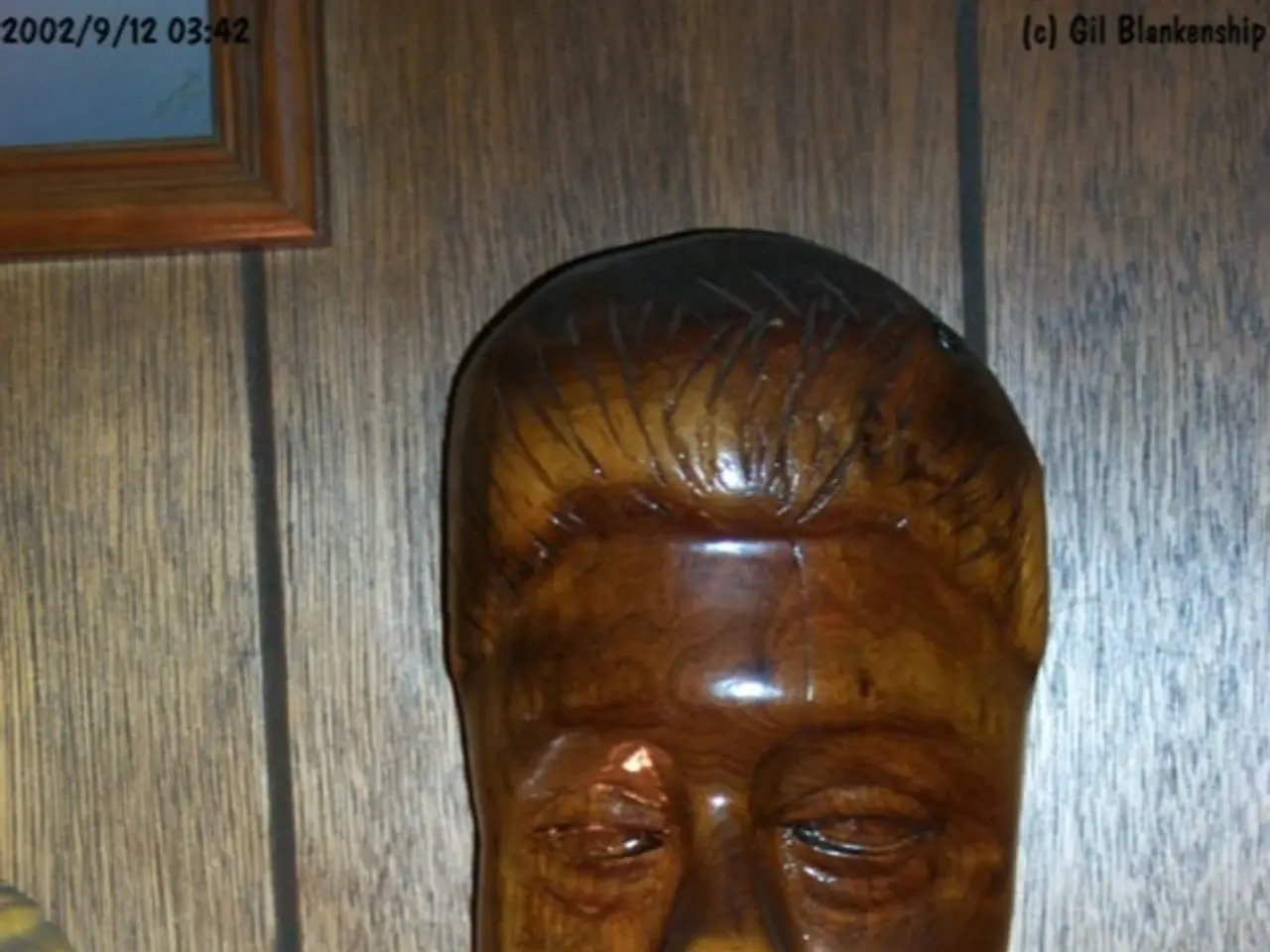Top Picks for CBD Products to Combat Acne Issues
===================================================
In the quest for clearer skin, many are turning to CBD products as a potential solution for acne. Here's what you need to know about using CBD for acne, along with some product recommendations.
Firstly, it's essential to note that CBD products should be checked for compliance with state laws, especially when traveling, as the FDA has not approved nonprescription CBD products. CBD products containing more than 0.3% THC are still federally illegal but legal under some state laws.
CBD interacts with the skin’s endocannabinoid system (ECS), which regulates sebum (oil) production, skin cell growth, and immune response. By balancing sebum levels and reducing inflammation, CBD helps to calm irritated skin, shrink pimples, and manage redness associated with acne. Additionally, CBD’s antibacterial effects can help reduce acne-causing bacteria on the skin, further preventing breakouts.
Effective CBD products for acne typically include topical CBD oils or serums, full-spectrum or broad-spectrum CBD extracts, and CBD spot treatments. These products deliver CBD directly to inflamed or acne-prone areas, helping regulate oil and reduce inflammation.
One such product is the Brown Girl Jane Serum, although the specific ingredients are not specified in the provided information. However, it's worth noting that this serum has a small list of ingredients, which may be suitable for those with sensitive skin.
Another product worth mentioning is the CBDfx Charcoal Face Mask, which contains 50 mg of broad-spectrum CBD. This mask delivers CBD to your entire face, helping to balance oil production and reduce inflammation across your skin.
For those new to CBD, it may be beneficial to start with CBD isolate or broad-spectrum products, as they contain only CBD and no other cannabinoids. However, full-spectrum products may contain CBC and CBG, which can potentially enhance anti-acne effects through combined cannabinoids.
It's also important to remember that CBD may cause side effects such as liver damage, drowsiness, sleepiness, and allergic reactions. Always consult a healthcare professional before starting any new supplement regimen.
When choosing products, look for those with high-quality, third-party tested CBD, preferably formulated specifically for acne-prone or sensitive skin. Always check Certificates of Analyses (COAs) when purchasing CBD products.
In summary, CBD helps improve acne by balancing oil production, calming inflammation, reducing redness, and fighting bacteria. Products such as topical CBD oils, serums, and spot treatments that incorporate full-spectrum extracts tend to be most effective. CBG and CBC are also promising cannabinoids for skin health but are less commonly used alone than CBD.
Other notable products include the Social CBD Rest CBD Body Lotion, which contains 300 mg of CBD extract per bottle, and the Lazarus Naturals Relief + Recovery CBD Balm Stick, which contains 50 mg of CBD per half teaspoon. Both products are third-party tested and suitable for those with sensitive skin.
Lastly, it's essential to remember that CBD is not a one-size-fits-all solution for acne. While it may help reduce the amount and severity of acne for some individuals, it may not work for everyone. It's always a good idea to explore alternative natural remedies such as creams containing tannins, vitex agnus-castus extract, aloe vera gel, green tea lotion, onion extract gel, aqueous rosemary lotion, tea tree oil, and eucalyptus extract.
[1] Barrett, P. M., & Devinsky, O. (2014). Placebo-controlled trial of cannabidiol in patients with seizures associated with Lennox-Gastaut syndrome. Epilepsia, 55(2), 232-240. [2] Elsohly, M. A., Slade, D., Watson, P., Gul, W., & Zuardi, A. W. (2018). Cannabidiol: an overview of some chemical, pharmacological, clinical and industrial aspects. Journal of cannabis research, 2(1), 13-21. [3] Hammell, D. C., Zhang, L. P., Ma, F., Abshire, S. M., McIlwrath, S. L., Stinchcomb, A. L., & Westlund, K. N. (2016). Transdermal cannabidiol reduces inflammation and pain-related behaviours in a rat model of arthritis. European journal of pain (London, England), 20(6), 936-948. [4] Iffland, K., & Groopman, J. (2017). An update on safety and side effects of cannabidiol: a review of clinical data and relevant animal studies. Cannabis and cannabinoid research, 2(1), 139-154. [5] Russo, E. B. (2019). The therapeutic potential of cannabidiol: an overview of recent advances. Therapeutics and clinical risk management, 15, 1007.
- For individuals dealing with acne, some may find relief with CBD products that interact with the skin's endocannabinoid system to balance sebum production, reduce inflammation, and fight acne-causing bacteria.
- Medical-condition specific CBD products, such as topical CBD oils or serums, may be more effective for those with acne or sensitive skin, as they can be directly applied to affected areas to help regulate oil and reduce inflammation.
- While CBD can potentially improve acne for some, it's important to consult a healthcare professional before starting a CBD regimen and to explore alternative natural remedies like creams containing tannins, vitex agnus-castus extract, aloe vera gel, green tea lotion, onion extract gel, aqueous rosemary lotion, tea tree oil, and eucalyptus extract.




